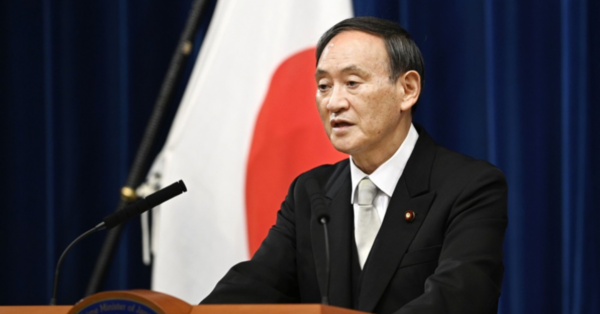Subscribe to our Telegram channel for our latest stories and breaking news.
Prime minister of Japan, Yoshihide Suga, announced yesterday, 8 July, that the state of emergency in the Tokyo prefecture will be extended for another six weeks
He announced the extension of the present state of emergency, which had been set to end this Sunday, after concerns regarding rising COVID-19 infections in the capital region. Tokyo reported 896 new cases on Thursday, which had risen from 673 the previous week.
“Taking into consideration the impact of the Delta strain, and in order to prevent the resurgence of infections spreading across the country, we need to step up virus prevention measures,” Suga was quoted as saying by Japan Today.
Tokyo perfecture in Japan.
Image via Wikimedia Commons
Set to be effective until 22 August, the measure will be in place the entirety of the upcoming Tokyo 2020 Olympics.
Already postponed from last year, the Japanese capital’s hosting of the Olympics amidst the pandemic has proved unpopular with local residents amid concerns of starting an outbreak.
The key reason for the state of emergency is to ensure bars, restaurants, and karaoke parlours that serve alcohol are closed to spectators seeking to gather for Olympics related festivities. Under the city’s current lockdown measures, these dining options are deemed inessential and are unable to operate.
“How to stop people from going out for drinks during the Olympics is a main issue,” stresses Health Minister Norihisa Tamura, concurring with Suga.
In response, the organisers of Tokyo 2020 has conceded that fans will be barred from all event venues in the area, including the opening and closing ceremonies
“No fans was a very difficult decision,” said organising committee president Seiko Hashimoto.
“We had no choice but to arrive at a no-spectator decision,” she told The Associated Press, adding, “We postponed and postponed, one after another. I have done some soul-searching about that.”
International fans were already barred months ago, and the events slated in the area will see mostly empty seats, bar selected dignitaries and sponsors.
Although a vast majority of the venues are located within Tokyo prefecture, a smattering of events in outlying areas – such as baseball in the northern prefecture in Fukushima – will allow a limited number of fans.
The opening ceremony for the Tokyo 2020 Olympics will be held on 23 July at the new USD1.4 billion National Stadium.
Japan is officially spending USD15.4 billion to host the Olympics, though several audits reveal the figure to be much higher.
Image via The Japan Times


